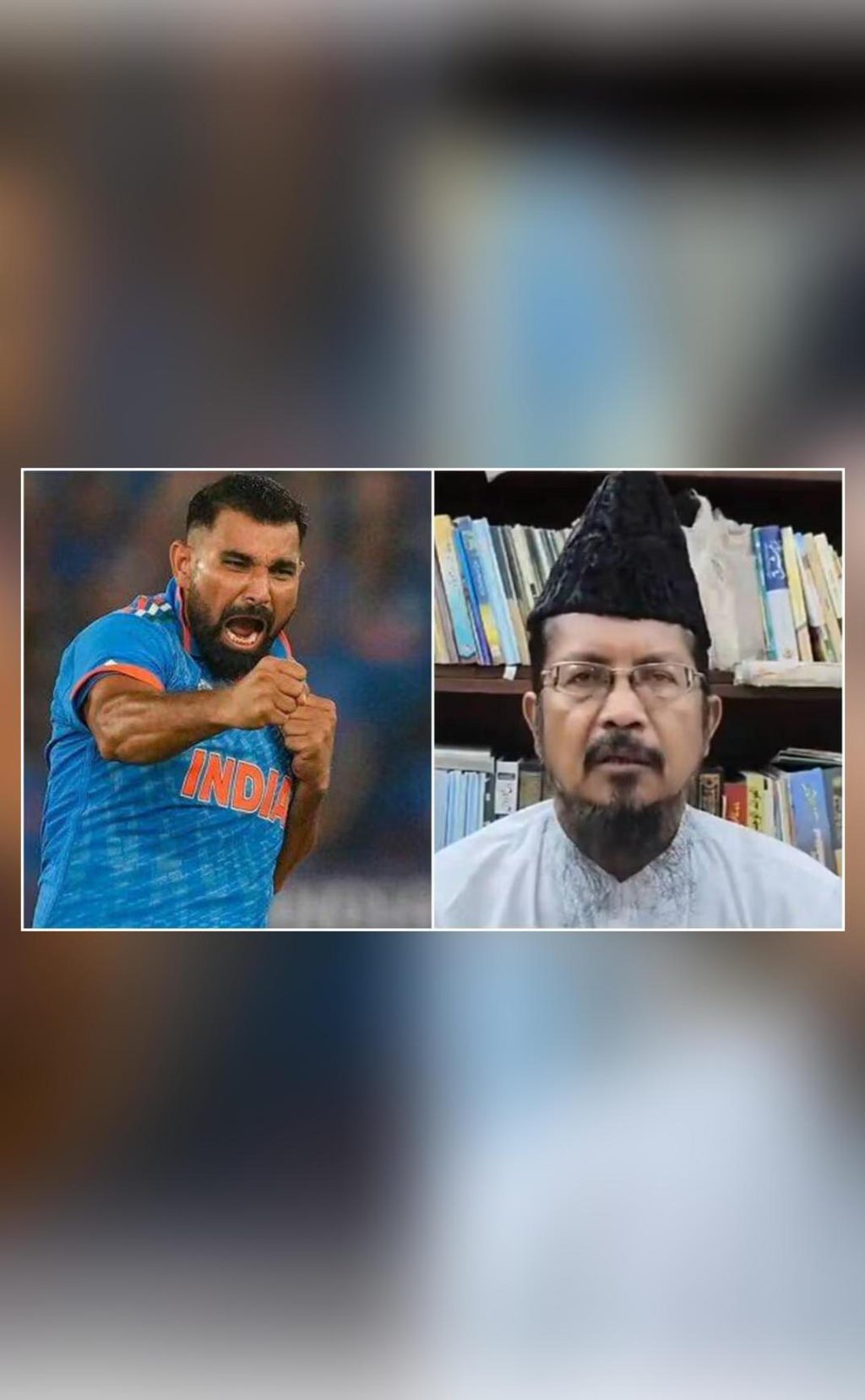
He Made the Remark for TRP: Cousin Defends Shami After Maulana Calls Him a “Criminal” for Not Keeping Roza
The debate around the observance of fasts during Ramadan has been a contentious issue in India for a long time. Recently, the controversy took a new turn when All India Muslim Jamaat President Maulana Shahabuddin Razvi Bareilvi called Indian cricketer Mohammad Shami a “criminal” for not keeping roza on the day of the India-Australia Champions Trophy 2025 match. Shami’s cousin, Mohammed Zaid, has now responded to the remarks, defending the cricketer and questioning the motives behind the Maulana’s statement.
Maulana Razvi Bareilvi’s statement was made during a live telecast of a religious program, where he criticized Shami for not observing the fasts during the holy month of Ramadan. He described Shami’s decision not to fast as “un-Islamic” and accused him of being a “criminal”. The statement sparked widespread controversy, with many people taking to social media to express their opinions on the matter.
However, Shami’s cousin, Mohammed Zaid, has now broken his silence on the matter, defending the cricketer and questioning the motives behind the Maulana’s statement. Zaid stated that Shami was playing in Dubai during the Champions Trophy match and that, under the circumstances, it was not feasible for him to fast. He emphasized that fasting is not a big issue and that Shami’s decision not to observe the fasts should not be blown out of proportion.
Zaid’s response was in sharp contrast to the Maulana’s statement, which was made with the intention of garnering publicity and TRP (Television Rating Points) for his religious program. Many people have been criticizing the Maulana for making such a statement, accusing him of using his position to spread hate and intolerance. Zaid’s response has been widely welcomed by many, who see it as a refreshing change from the usual dogmatic and intolerant views that are often expressed by religious leaders.
The controversy surrounding Shami’s decision not to fast has highlighted the need for a more nuanced and tolerant approach to religious issues in India. While it is essential for Muslims to observe the fasts during Ramadan, it is also important to recognize that there may be circumstances where it may not be feasible for everyone to do so. Shami’s decision not to fast, for instance, was likely made due to his international cricket commitments, which require him to travel and play matches on certain days.
It is also important to recognize that the Maulana’s statement was made with the intention of garnering publicity and TRP, rather than with the intention of promoting a nuanced and tolerant understanding of Islam. Such statements can do more harm than good, as they create divisions and foster an atmosphere of intolerance and hatred. Zaid’s response, on the other hand, has been widely welcomed, as it emphasizes the need for tolerance and understanding in religious matters.
In conclusion, the controversy surrounding Shami’s decision not to fast during Ramadan has highlighted the need for a more nuanced and tolerant approach to religious issues in India. While it is essential for Muslims to observe the fasts during Ramadan, it is also important to recognize that there may be circumstances where it may not be feasible for everyone to do so. Shami’s decision not to fast, for instance, was likely made due to his international cricket commitments, which require him to travel and play matches on certain days.
It is also important to recognize that the Maulana’s statement was made with the intention of garnering publicity and TRP, rather than with the intention of promoting a nuanced and tolerant understanding of Islam. Such statements can do more harm than good, as they create divisions and foster an atmosphere of intolerance and hatred. Zaid’s response, on the other hand, has been widely welcomed, as it emphasizes the need for tolerance and understanding in religious matters.






